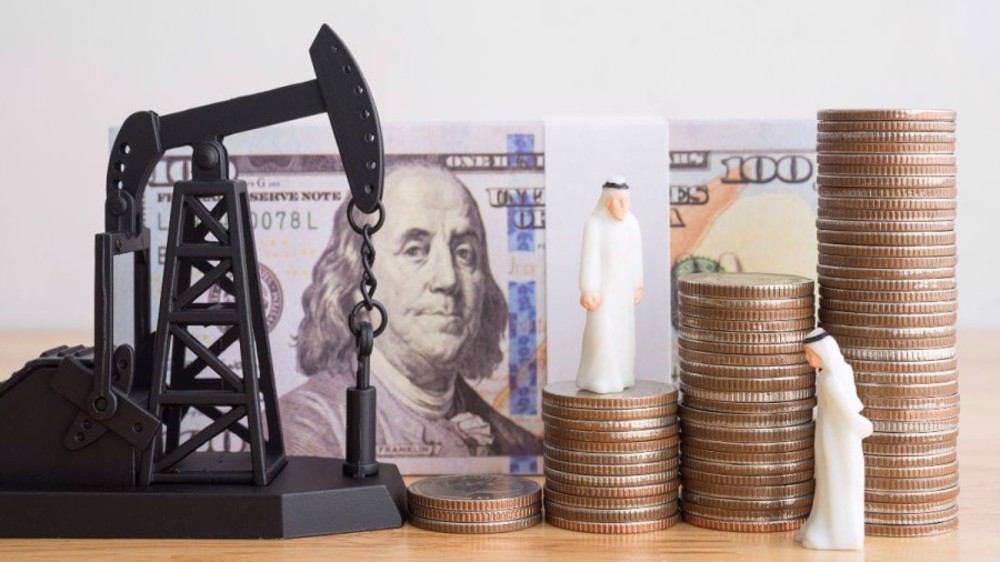Saudi ditching of petrodollar portends US economic doomsday
Saudi Arabia’s decision last week not to renew a 50-year-old agreement with the US to exclusively use the dollar in oil transactions was big news, but a simple search on the internet shows it did not get any coverage in the mainstream Western media.
Much as it is cataclysmic for the future of the US economy, the media blackout barring the minimalist reportage in nonconformist social media outlets shows the extent of dread and horror about the potential consequences of the decision.
The US government is currently servicing more than $34.5 trillion in debt, rooted in the same agreement which has provided the country with the unique ability to run large trade deficits without facing immediate economic repercussions. If the current financial order collapses, the United States will turn right away to the world’s worst country in penury.
The “petrodollar agreement” dates back to the 1973 oil crisis, under which Saudi Arabia committed to price its oil exports exclusively in US dollars and invest its surplus oil revenues in US Treasury bonds.
The deal gave the US access to a stable source of oil and a captive market where the country could constantly issue dollar debt and earn dollars for exports.
The agreement turned the US dollar into the world’s reserve currency, where the global demand for the American fiat money to purchase oil greatly strengthened the greenback and profoundly impacted the country’s economy. The influx of surplus oil revenues into the US Treasury also created a strong bond market and supported low interest rates.
If world nations stop using dollars to conduct trade, the demand for the US currency will plunge. This will create a dollar glut and a rapid devaluation of the greenback and unheard-of inflation in the United States.
By all signs, the fat is already in the fire. According to economists, a global push to ditch the dollar as the world's primary reserve currency will inevtiably set in.
As per the Wall Street Journal, 20 percent of global oil was bought in currencies other than the dollar in 2023.
Russia, Iran, Saudi Arabia, China, and others are increasingly shifting to local currencies in energy trade.
In January, the United Arab Emirates successfully completed the first cross-border payment using the digital dirham for transaction to China. It came shortly after the Persian Gulf country carried its first oil export deal with India in rupees.
Saudi Arabia’s decision not to renew the petrodollar agreement which expired last week represents a major shift in global power dynamics where the growing influence of emerging economies spells the decline of the American financial domination.
The kingdom has been invited to join the BRICS group of emerging countries, which seek more use of local currencies in trade among members.
Last Tuesday, Saudi Arabia’s foreign minister, Prince Faisal bin Farhan, took part a BRICS outreach ministerial meeting in Nizhny Novgorod, Russia to discuss issues and priorities of common interest, developments on the international scene, and current global challenges.
The BRICS is a group of emerging economies that includes Brazil, Russia, India, China and South Africa, who were joined at the start of this year by new members Iran, Egypt, Ethiopia and the UAE.
The bloc has a combined population of about 3.5 billion people. It makes up roughly 28 percent of the global economy, worth over $28.5 trillion. BRICS nations also account for about 42 percent of global crude oil output.
China has been pushing Saudi Arabia to accept yuan for oil, and the Saudi government has reportedly expressed openness to the idea.
The kingdom has already announced its bid to join Bank of International Settlements’ mBridge payment system and thus leaving the petrodollar system as the only payment system for energy.
Other currencies, such as the euro, the Chinese yuan and even cryptocurrencies, could become more prominent in international trade, potentially diminishing the dollar’s hegemony.
Analysts say while it will be years before the US dollar loses its reserve currency status, the ongoing ramp-up in the transition away from Western currencies amid the rise in geopolitical tensions shows the doomsday is inevitable.
Syria’s HTS-led regime, Israel to set up joint intelligence-sharing cell
Saudi-led coalition hits southern Yemen, targets arms depot in al-Dhale
China slams ‘bullying’ US demand for exclusive Venezuela oil partnership
Russia deploys submarine as US attempts to seize oil tanker in Atlantic
Magnetic revolution: Iran’s nano-solutions driving cleaner and greener oil industry
Deadly clashes erupt in Syria’s Aleppo as US-backed SDF forces defy HTS rule
FM Araghchi: Iran’s internal affairs solely matter of its people
Iran army chief: Enemy threats will not go unanswered










 This makes it easy to access the Press TV website
This makes it easy to access the Press TV website